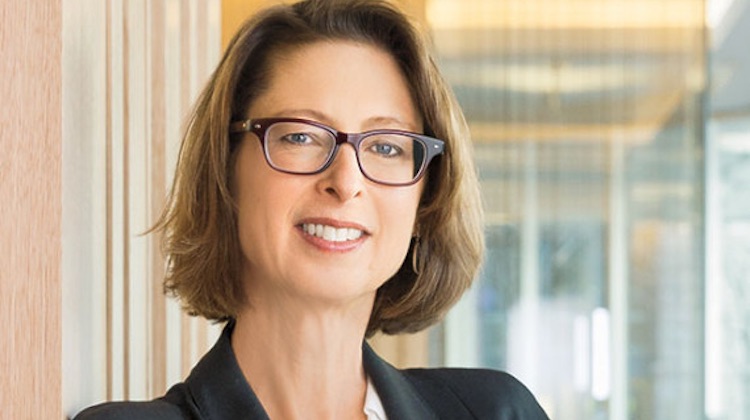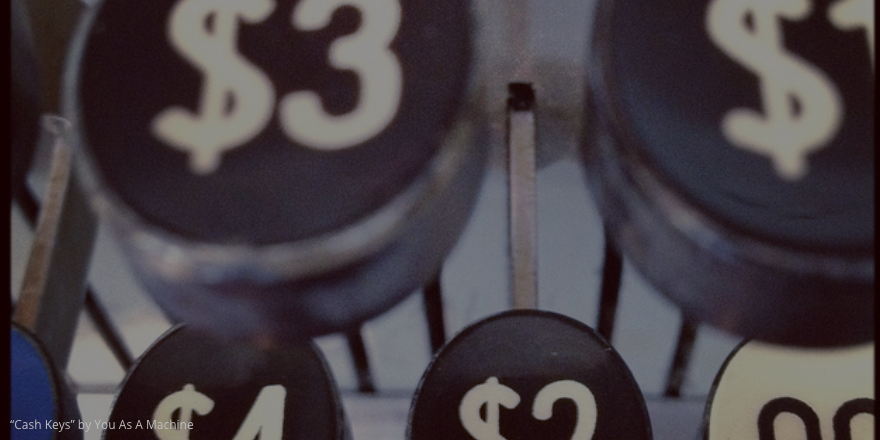WTF is The DAO?
5 trends we’re watching this week
Wall Street’s top 6 bitcoin projects
WTF is bitcoin?
How Digital Currency Council’s Sarah Martin is professionalizing bitcoin and blockchain technologies
Sarah Martin is Vice President of the Digital Currency Council
What is the DCC? What are its objectives?

The Digital Currency Council (DCC) is the world’s largest bitcoin and blockchain technology trade organization. We’re roughly 2,500 members strong across 100 countries worldwide, and our membership comprises top-level executives from tech, finance, government, law, media, and business services. We’re dedicated to growing the digital currency industry and advancing blockchain technology. We welcome new members with online coursework in bitcoin basics and free educational resources. And we offer a gateway to tap into a network of senior digital currency professionals – entrepreneurs, venture capitalists, technologists, and heads of financial institutions. Our ambition is to provide an online ecosystem to connect people around the world and facilitate linkages for our members to create business or professional opportunities or meet up with one another at conferences and global events.
What are some of the biggest challenges in today’s market facing digital currency and ancillary technologies?
The digital currency industry is going gangbusters right now. It’s a tremendously exciting time to be part of the thrill ride. What can be a little unnerving as excitement, attention, and investment keep hitting the gas is whether we’ll speed up too fast and get pulled over. Regulatory uncertainty has been hanging over our industry for years. As we continue to accelerate, questions about if, how, when, and where bitcoin and blockchain technology will be regulated loom even larger. Regulation is not a new or unique issue for the digital currency industry. But it’s one of the top concerns that our members express when asked what keeps them up at night.
Where are some of the biggest opportunities for incumbent financial service firms with digital currency? What about startups in the space?
Faster payments. Overhauling financial infrastructure may not sound super sexy, but the efficiency and cost savings may be formidable. Several startups* are currently working with large financial institutions to pilot blockchain-based systems to expedite clearing and settlement. We’re also encouraged that the UK, US, and Canadian governments have all expressed interest in exploring distributed ledger-based systems to modernize their payments infrastructure. We’re focused on fostering these types of collaboration – between startups and financial institutions or startups and government systems – and we’ve been thrilled by the number of partnerships in the last year.
*I’m afraid I can’t outwardly endorse any here.
What are your plans for 2016? What should we keep our eyes out for?
The DCC just had its first birthday and we’re astounded by the growth in just one year. It really speaks to the spirit behind the digital currency industry and outlook of our members for blockchain technology. We didn’t anticipate the sudden surge in support for blockchain technology during this past year. But, we’re excited to share in that enthusiasm, and our objective is to accelerate that upward trajectory. Right now, we’re focused on expanding our international membership. Bitcoin is a global phenomenon, and we’re building new alliances with partner organizations worldwide to support our members overseas and provide them with resources and access to opportunities.
Photo credit: Dean Hochman via Visualhunt.com / CC BY
A week after selling to Nasdaq, SecondMarket founder raises money for blockchain venture
Barry Silbert is a man on a mission. As the founder of SecondMarket, the ink has barely dried on Nasdaq’s acquisition of the fintech platform specializing in tender offers (private transactions in private companies) and now the entrepreneur is on to his next big thing.
[x_pullquote type=”right”]As it gets more liquid, as a [payment] rail it will become a real alternative to the existing money transfer systems in the world today. — Barry Silbert, Digital Currency Group[/x_pullquote]Silbert took the opportunity of speaking from the stage at Money 20/20 to announce the launch of his new firm, Digital Currency Group (see its Crunchbase entry). DCG, a digital currency and block chain company, is being joined by an A-list of strategic investors. Bain Capital Ventures, Transamerica Ventures, FirstMark Capital, MasterCard, and New York Life will use DCG to gain exposure to the rapidly growing cryptocurrency space.
In addition to these investments, the company will also operate wholly-owned subsidiaries Genesis Global Trading, a bitcoin OTC trading firm, and Greyscale Investments, the firm that manages the publicly traded Bitcoin Trust (Symbol: GBTC). Silbert also said that DCG will launch a third wholly-owned subsidiary in 2016 (Source).
Fortune’s Dan Primack had more color on Silbert’s strategy driving DCG:
It also will house a portfolio of 57 seed-stage investments that Silbert and his team have already made, including Chain, Circle, Coinbase, Ripple and Xapo. They also have backed several companies looking to exploit bitcoin’s blockchain technology for uses outside of finance, including Ascribe (managing digital IP) and ShoCard (digital identification).
Silbert has been very active as an investor in the bitcoin space. He said that given the extent of his portfolio, he estimates that his portfolio has attracted 70% of all venture capital that’s been poured into the digital currency and bitcoing space.
Creating a digital currency ecosystem
Silbert plans to utilize DCG as a holding company of sorts to make further investments in the space. He told CoinDesk that DCG will invest in a further 10 to 20 companies in 2016.
Indeed, Silbert sees DCG’s role as more than just a seeder of new business in the fledgling market. With such a sizeable and influential portfolio, DCG can act as somewhat of an ecosystem for companies playing in the blockchain space.
Per CoinDesk:
In turn, his company is hoping to use its “unique position” in the industry to foster collaboration between entrepreneurs, investors and – crucially – legacy institutions, who are seeking answers about blockchain technology’s disruptive potential.
That’s just one side of the market. Large financial institutions, some of them making their first moves into the digital currency space, need the safety and guidance of a firm that’s helping to lead the charge. That’s where DCG comes in. With 5 showcase institutional investors, DCG may act as a curated accelerator of firms looking to do business with the incumbent financial industry. In this way, DCG can act as matchmaker, pairing up supply and demand between startup fintech firms and larger, multinational institutions looking to partner.
[x_share title=”Share this Post” facebook=”true” twitter=”true” linkedin=”true” reddit=”true”]
[x_author title=”About the Author”]













